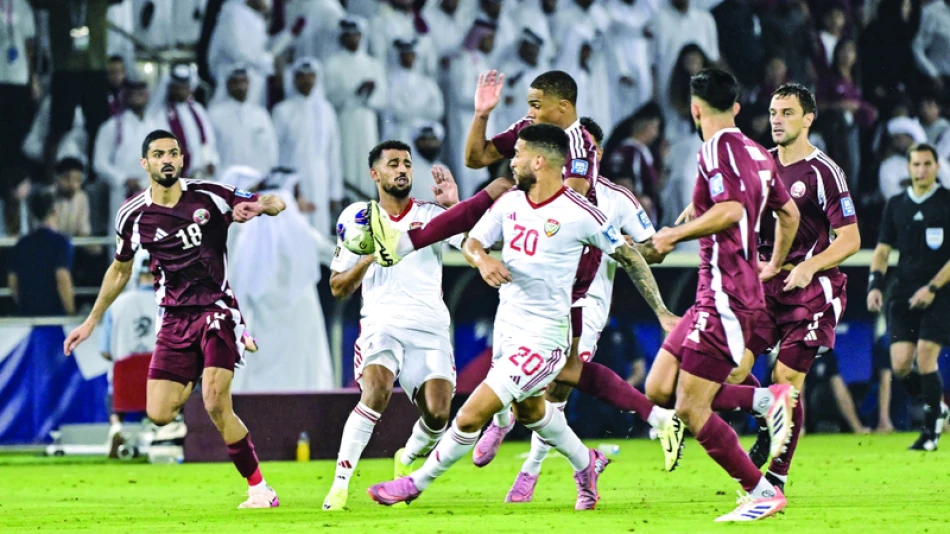
Athletes Demand Evaluation of Player Performance Ahead of Iraq Match
UAE's national football team still has a shot at reaching the 2026 World Cup despite recent setbacks, according to sports figures who say it's time to rally behind the squad rather than point fingers. The team faces a crucial two-leg playoff against Iraq on November 13 and 18, and former players and coaches are calling for unity and tactical adjustments rather than blame games.
The conversation around goalkeeper Khalid Eissa has been particularly heated after the team's disappointing performance. But former national team player and coach Salem Rabie says the entire defensive unit shares responsibility, not just the keeper. "This isn't the time for criticism," Rabie told local media. "We need to come together and support the team while we still have a chance, even if it's gotten harder."
Rabie, who played during the UAE's golden generation and coached top clubs Al Nasr and Al Wasl, admits the team made things difficult for themselves. "We wasted the easier opportunity, and now it's much harder. But the chance is still there, so we need to stick together to get through this tougher phase."
The blame game around Eissa has frustrated many in UAE football circles. The goalkeeper has delivered strong performances throughout the campaign, including a standout showing against Oman. Sports figures argue that defensive coverage and marking on set pieces were the real problems, not individual goalkeeping errors.
Coach Eid Barout remains optimistic about manager Olario Cozmin's ability to turn things around. Some critics question whether Cozmin, known for his club success, can deliver with national teams. But Barout pushes back on this narrative. "A great coach succeeds wherever he works. Cozmin is one of the best coaches who've worked in UAE football, and his impact with the national team will become clearer soon."
Barout points to Croatia's Zlatko Dalic as an example - a coach with no prior national team experience who led his country to the World Cup final in his first international job. "Coaching depends on experience and competence," he says.
The tactical discussion has also focused on player selection. Barout believes striker Sultan Adel should have started from the beginning, given his scoring ability. "There are players who deserved to play, and others who got chances but weren't the best options. We need a comprehensive evaluation to improve the team's situation."
Looking ahead to the Iraq matchup, Barout sees reasons for optimism. "The UAE's technical conditions are better than Iraq's," he notes. The two-leg format also provides advantages the team lacked in recent qualifiers - home ground support and familiar conditions.
Youth team goalkeeper coach Youssef Al Zaabi expects the national team to return stronger for the Iraq clash. The neutral venue setup means both teams will have equal ground and crowd support, something the UAE missed in recent playoff rounds.
"Our confidence is high that all team members can recover this opportunity despite its difficulty," Al Zaabi says. As a goalkeeping specialist, he's particularly defensive of Eissa. "Goalkeepers face the most psychological pressure and have to make decisions in seconds. I'm confident he'll be at his best in the upcoming matches."
The broader context shows UAE football at a crossroads. The team had multiple paths to qualification but now faces a narrow window through the Asian playoffs. Success against Iraq would keep World Cup dreams alive and validate the current technical approach. Failure would likely trigger major changes in personnel and strategy.
For investors and football business watchers, UAE's World Cup participation carries significant economic value. The country has invested heavily in football infrastructure and coaching, making qualification important for justifying these expenditures and attracting future investment in the sport.
The Iraq games will test whether UAE can handle pressure situations and whether Cozmin's methods work in high-stakes knockout football. The team's technical preparation and mental resilience will be crucial factors in determining if they can salvage their World Cup ambitions from what many see as a difficult position.
Most Viewed News

 Sara Khaled
Sara Khaled






